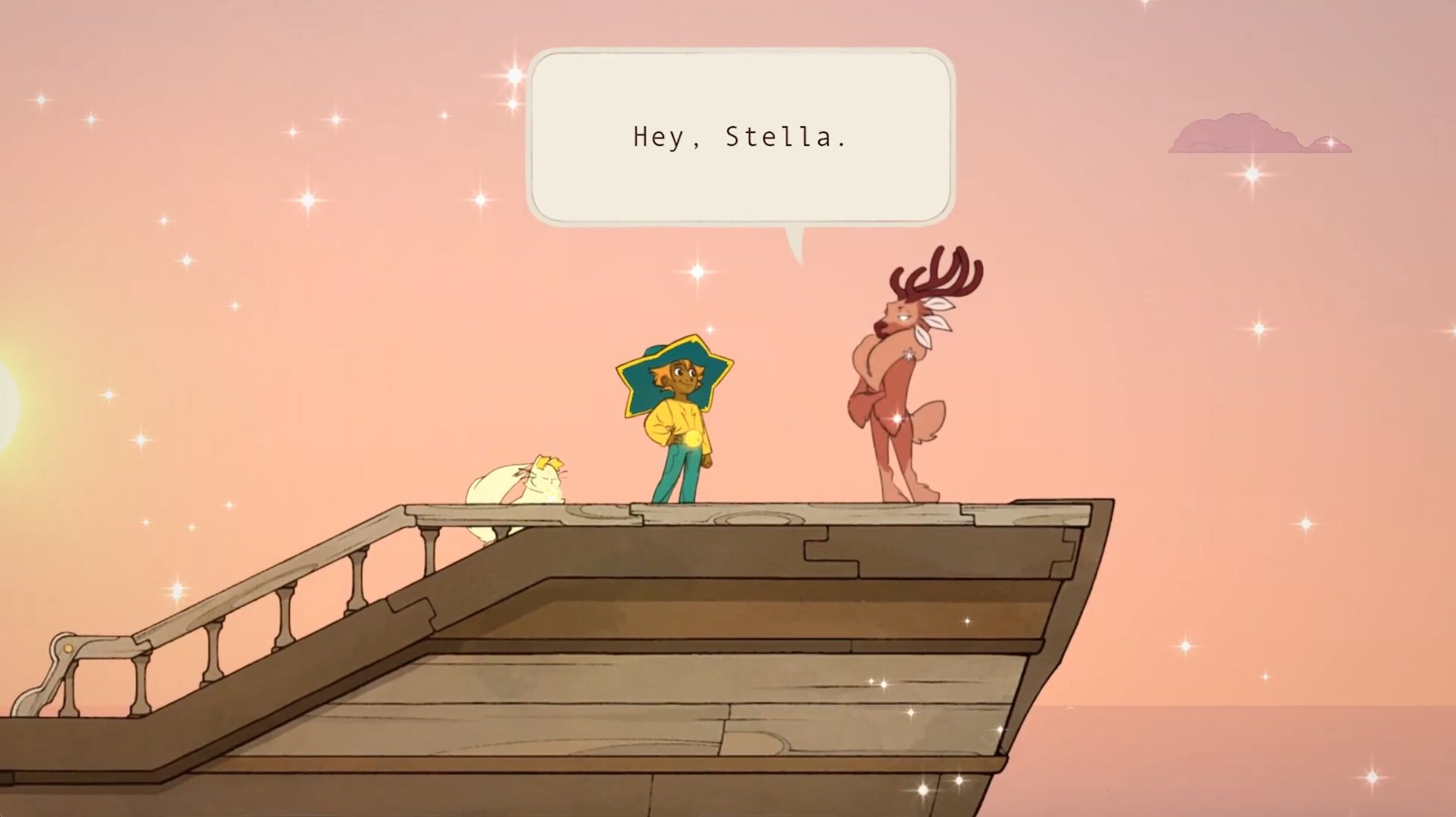

#Stella spiritfarer movie#
We didn’t know what the movie was about, which was a mistake, but also wasn’t.

I return to a memory of my dad:Īfter my grandfather died, my father took my sister and me to see Big Fish. I try to make games a part of this process I am going through, but they are not entirely honest with me about grief. An uncompromising honesty & brokenness in The Last of Us: Part 2, but perhaps too nihilistic. Cozy closure that is still wise in Spiritfarer. Credit: Naughty Dogīoth games offer drastically different, contradictory perspectives into grief. Her grief becomes literal: A melody that can no longer be resolved. She can no longer physically play the song Joel taught her on the guitar. By game’s end, Ellie is transformed for the worse. Ellie’s hubris is believing she can find closure–first through revenge, then domesticity, and finally sheer nihilism. This game teaches you a similar lesson in the tradition of tragedy. Researchers investigate ideas of ‘ ambiguous loss’, an idea that suggests closure itself may be a myth. Grief is misunderstood – even now in the face of global tragedy like Covid. There is still something awful inside Ellie, like the cordyceps lodged within her mind, where nothing can feel real until she lets the poison out. Grief has come to find her in these Elysian fields, but perhaps it never ever left. Yet pain still feels far more real, more urgent to Ellie. She is inside goodness: A domestic dream of peace and comfort with Dina and a baby. After a bloody campaign of revenge, she achieves the impossible.
.600.3111335.jpg)
It seems Ellie is on the other side of grief. Spiritfarer envisions serene self-awareness at the end, while The Last of Us: Part 2 shows how grief breaks you. It may be strange to compare these two games that seem nothing alike, but they are two sides of an Obol, the coin you pay the ferryman when you die. Moths swarm around lampposts in the game’s loading screens. Moths are on the guitar Joel, surrogate dad, gives Ellie, one of the protagonists you play. Moths are everywhere in The Last of Us: Part 2, a game fresh in my mind after playing Spiritfarer. Spiritfarer gives something to aspire to in face of the inevitable – if you’re going to transform, why not be one of the ethereal butterflies that flit about Stella? My mind shifts to a darker transformation. Grief transforms you, whether you like it or not. It simply isn’t for me as I’d hoped it’d be. There is nothing intrinsically wrong or lesser with this kind of escapism.

#Stella spiritfarer full#
Spiritfarer knows how comforting the tight, full circle of a hug is – and, to its credit, does have characters and moments that speak to how smothering this embrace can feel. In a group therapy session, two strangers hug and their therapist calmly asks: “Does hugging feel honest?” I’m reminded of a line from Mad Men where suave grifter Don Draper finally unravels from grief. The overwhelming positivity here feels alienating. This video game is kind to me: It tells me what to do. The video game tells me it is okay: It gives me something to achieve, rewards my hard work, lets me be loved by characters who accept my help, wraps timers in charming aesthetics. “Please, video game,” I think to myself as Stella completes chores with a giant smile, “keep me from this feeling.” Spirits around her are dying from dementia, cancer, suicide. Writing this brings me sorrow, because the neatness of this game bears no resemblance to the messiness of grief I’m living through. Inside this beautifully achieved fantasy of palliative care is the familiar rhythm of a game that wants to assure me everything will be okay. Death needn’t be scary, there is always something to do. The spirits you shepherd are almost always grateful and the truly dead are rarely mentioned after they’re gone.
#Stella spiritfarer install#
It is a management game after all: You water crops, install an HVAC system, master mini-games that turn ingredients into different ingredients. It’s not just about Stella’s idle animation, because Spiritfarer rarely asks you to be idle.


 0 kommentar(er)
0 kommentar(er)
